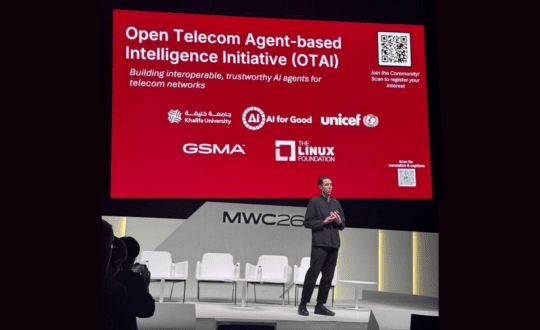Singapore’s Info-communications Media Development Authority (IMDA) recently announced the creation of an Advisory Council on Ethical Use of AI and Data as part of an effort to bring together a range of key stakeholders to inform the government on possible approaches to ensure consumer trust in AI-powered products and services. ITU News recently caught up with IMDA’s Assistant Chief Executive of Data Innovation and Protection, Yeong Zee Kin, to learn more about Singapore’s approach to this important and timely issue.
Why is it important to have a council on the ethical and legal use of AI and data now?
With the recent launch of the Digital Economy Framework for Action, Singapore has entered a new phase of its digitalisation journey. The ability to use and share data innovatively and responsibly can become a competitive advantage for businesses. Infusing AI into business operations can accelerate digital transformation through new features and functionalities.
We believe that progressive policies are key enablers of data-driven innovation. As a technology, AI is still developing, but more importantly, businesses have only just begun to explore how AI can be used to enhance their products and services.
‘As industry adoption of AI grows, we have to promote responsible use of both AI and data.’ – Yeong Zee Kin, Assistant Chief Executive of Data Innovation and Protection, IMDA
We need to give both technology and businesses the room to explore and grow. However, consumer concerns about algorithmic decisions must be acknowledged and addressed.
As industry adoption of AI grows, we have to promote responsible use of both AI and data, so that we engender a high level of consumer trust, which will translate into consumer willingness to make use of AI-empowered apps and services.
Thus, there is a need to demystify AI and inspire public confidence in innovative use of data-driven technologies through proper policies, governance and education.
Given the fairly early stage of AI technology maturity and deployment into products and services for consumers, our view is that it is premature to prescribe or enact legislation, which could stifle innovation. At the same time, it is timely to begin discussions on ethical and legal uses of AI and data so as to address concerns and issues – rather than waiting for post-fact considerations.
Hence, the Advisory Council on Ethical Use of AI and Data has been set up to provide guidance on complex ethical issues arising from new business models and innovations in the AI space. It brings together AI technology providers, businesses that use AI and representatives of consumer interests, and will host conversations with industry and consumers.
Results from discussions and recommendations of the Council will inform the government on possible approaches and any need for future regulation. Additionally, sector regulators can customise this voluntary framework for their sectors. The Monetary Authority of Singapore (MAS) is one such example.
What are the council’s goals?
The Advisory Council on the Ethical Use of AI and Data, appointed by the Minister for Communications and Information, is formed for the purpose of:
- advising the Government on legal/ethical, policy and governance issues arising from the use of data-driven technologies in the private sector; and
- supporting the Government by providing general guidance to businesses to minimise legal/ethical and sustainability risks, and to mitigate adverse impact on consumers from the use of data-driven technologies.
Apart from advising the Government, the Advisory Council is expected to helm public discussions with industry and consumers, and to publish discussion papers, advisory guidelines, practical guidance and codes of practice for the voluntary adoption by businesses.
One of its first tasks will be to expand on the proposed accountability-based framework for AI and data governance issued by the Personal Data Protection Commission (PDPC) in a recent discussion paper into a model framework for industry.
‘Singapore is preparing for the Digital Economy.’
Former Attorney-General V.K. Rajah SC has been appointed the Advisory Council’s inaugural Chairman. The composition of the Advisory Council will include private sector thought leaders in AI and Big Data from local and international companies as well as representatives for consumer interest.
How will industry and academia contribute?
The PDPC has released a discussion paper, Artificial Intelligence (AI) and Personal Data: Fostering Responsible Development and Adoption of AI to promote structured and constructive discussion on AI. Organisations are free to adapt this discussion paper to develop their own internal governance framework for AI development and/or adoption.
The Advisory Council will use the discussion paper to spark discourse on issues such as those relating to governance processes, consumer relationship management and decision-making assessments – essentially how an organisation can develop and/or deploy AI solutions in a responsible manner so as to inspire consumer confidence and trust in these solutions.
RELATED: Singapore’s data strategy targets regional growth
The Council will look at these issues from a cross-sectoral perspective and canvass views from businesses, trade associations and chambers and relevant sector leads. Additionally, the Council will also create opportunities for engagement with consumers and users of AI.
Eventually, the Advisory Council will further develop the reference AI governance framework described in the discussion paper into a model AI governance framework that can be adopted by businesses.
The Monetary Authority of Singapore (MAS) is an early and active collaborator in creating the discussion paper. Its FEAT (Fairness, Ethics, Accountability and Transparency) Committee, a collaborative partnership with key financial industry stakeholders, will use the discussion paper to help shape its ongoing discussion on the use of AI and data analytics in the financial industry.
‘AI is one of the frontier technologies identified to power the digital economy.’
Academia can also use the discussion paper to frame their discussions on AI-related issues and develop thought leadership in these areas.
To achieve this, a five-year Research Programme on the Governance of AI and Data Use is being set up at the Singapore Management University (SMU) to conduct scholarly research on policy, legal, regulatory, governance, ethics and other issues relating to AI and data use. It will support the Advisory Council and inform Government and industry discussion on AI challenges through its research and conferences.
How will the five-year research program support this work?
The aims of this Research Programme are to:
- Promote cutting-edge thinking and practices in AI and data policies and regulations;
- Inform AI and data policy and regulation formulation in Singapore through research publications and stakeholder engagement events and activities; and
- Establish Singapore as a global thought leader in AI and data policies and regulations.
The expected outcome would be greater clarity of AI development and impact on policy and regulations, as well as raising Singapore’s thought leadership among the international AI and data research communities. More information about how the centre will operate will be made available at its launch.
Singapore is preparing for the Digital Economy, and has released a framework for action consists of three thrusts to enhance the Republic’s position as a leading digital economy:
- Help industries and companies ACCELERATE their digitalisation journeys;
- Strengthen Singapore’s ability to COMPETE internationally, through open innovation and the fostering of new ecosystems, enabled by digitalisation;
- TRANSFORM the ICM sector to deepen capabilities in frontier technologies and nurture the next generation of globally competitive digital champions.
AI is one of the frontier technologies identified to power the digital economy. IMDA is engaging in growing the industry – both via industry initiatives and regulatory certainty – in order to harness its powers for the benefit of Singapore.
This not only creates opportunities for businesses, but opens new career paths for workers who are keen to pick up new skills and take up frontier roles.
RELATED: AI will disrupt the world as we know it: Anastassia Lauterbach
Through initiatives such as the Council, Singapore can approach and educate itself on AI, its applications, considerations and issues, in a clear, concise and targeted manner. This would raise consumer awareness and understanding, enhance adoption and unlock the potential of AI.
The success of a Digital Economy depends equally on consumers who are prepared to participate in it. As businesses make better and more pervasive use of AI, consumers will be able to tangibly benefit from improvements in efficiencies, access and use new features empowered by AI and generally benefit from faster diffusion of AI into the market place.
Views expressed in this article do not necessarily reflect those of ITU.


 Register here
Register here











